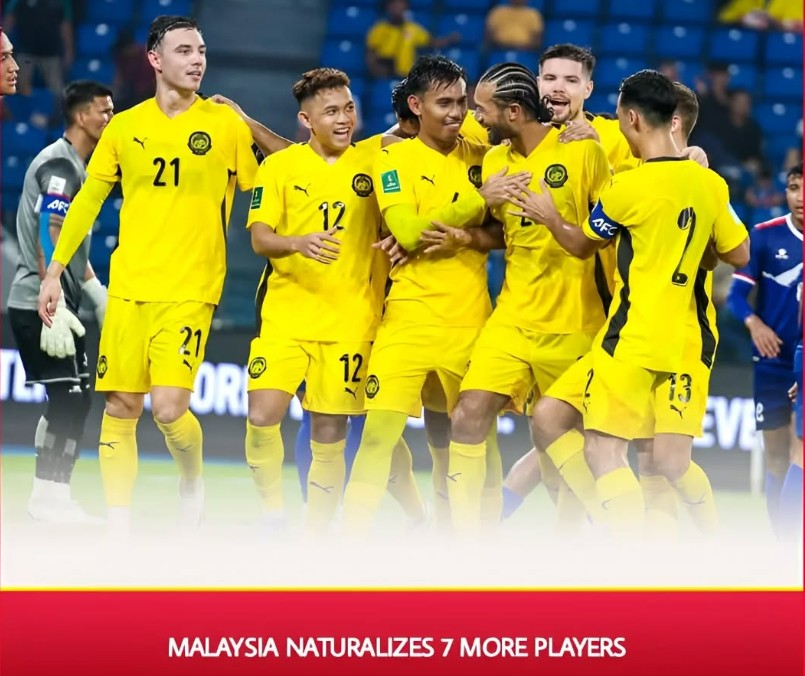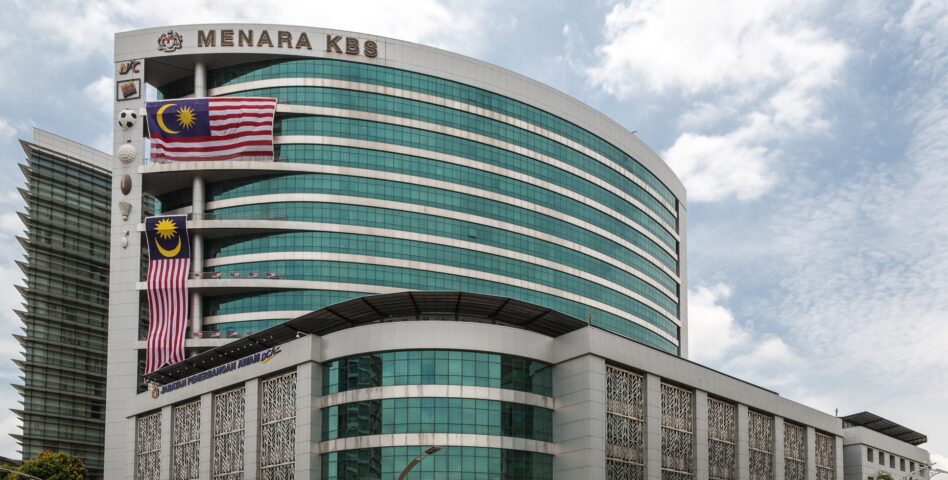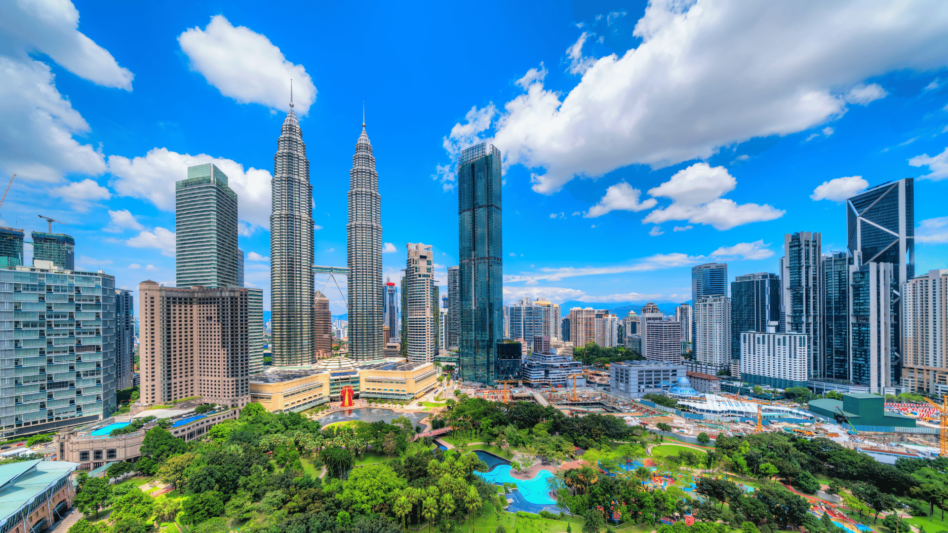THE issue of football players choosing to represent a national team other than their homeland is nothing new.
Brazilian Deco is possibly the most high-profile case when he chose to don the colours of his adopted country – Portugal – in 2003.
There are also a number of cases where players have opted to represent one of the British home nations such as Scotland and Wales based on their ancestry.
This includes notable names such as Vinny Jones and Brennan Johnson – both born and raised in England but had Welsh ancestors in the family tree – thus qualifying them to play for the Welsh Dragons.
But what if a player doesn’t have any lineage to that nation nor having even lived there prior to donning its national jersey?
This was the point digital creator Roman Akromovic (@SyedAkramin) strived to drive home on X by alluding to a post welcoming Facundo Garces to the Harimau Malaya (national football squad) ranks.
Selepas 60 tahun dan ratus juta $$$ hangus, Malaysia gagal ke Piala Dunia. Kini FAM beri tumpuan kepada pemain naturalisasi dan warisan. Liga pun sudah benarkan 15 pemain import.
Apa nasib sekolah sukan, akademi bolasepak, MSSM dan semua program akar umbi? Sudah boleh ditutup? https://t.co/ggjjTH2maS
— Roman Akramovich (@SyedAkramin) June 3, 2025
The Argentine who plies his trade as a defender with La Liga outfit Deportivo Alaves does not have any known link to Malaysia.
This prompted the poster to suggest that after 60 years and hundreds of millions of ringgit invested, Malaysian football is still in the doldrums by failing to qualify for the World Cup.
He went on to lament that the domestic league now permits up to 15 imported players while FAM (Football Association of Malaysa) itself was turning its attention to naturalised players.
What of the many grass root initiatives such as MSSM (Schools Sports Council of Malaysia) and football academies? Were these to be shut down as well?
Given the popularity of the sport in the country, it was no surprise that the post has gone viral, garnering 646.4K views at the time of writing.
One netizen made his feelings crystal clear with an image featuring a banner that loudly denounced having foreigners in the national team.
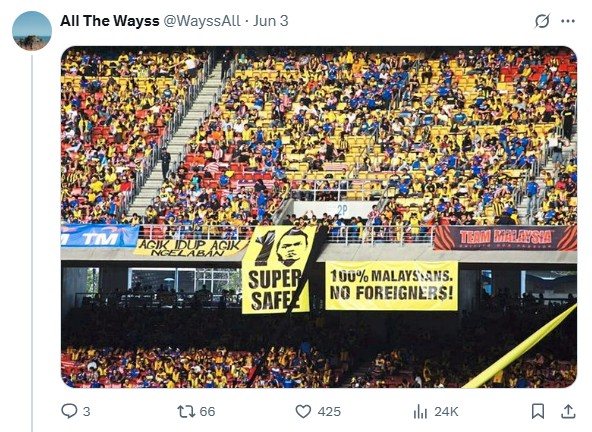
More than one favoured a system based on the Japan model highlighting its competitive domestic leagues that gave local players opportunities.
This was the way forward as the proof is in the pudding – many Japanese players play professionally in top European clubs such as Liverpool and Arsenal while helping Team Nippon to regularly qualify for the World Cup.
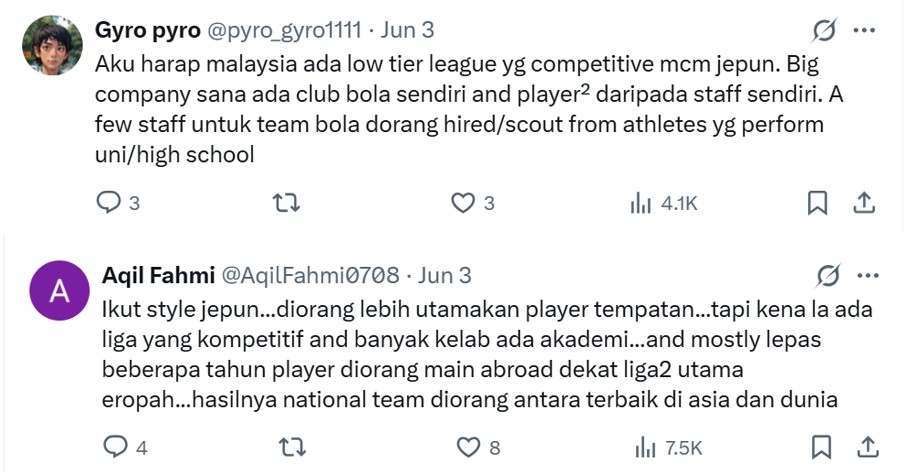
Why the need to close all sports schools? They aren’t just for the development of football alone, chided one netizen.

Another argued that grassroot development is still required for the long term future of the sport. In fact, every local club should have its own youth academy to facilitate this, he surmised.

A few were in favour of allowing players with links to Malaysia to represent the country. One commenter used the example of Morocco which widely used Ligue 1 players in France for its national team albeit those with the relevant heritage.
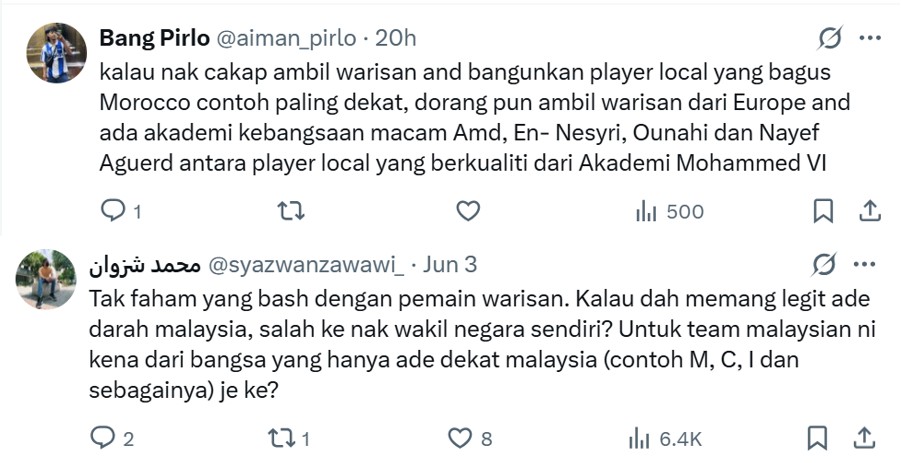
But in the case of Garces, he has no known links to Malaysia. He is naturalised player who is quite simply a short-term fix.
This is indeed a thorny issue which has wider repercussions for national identity, never mind the money spent on decades of development programmes.
However, it can safely be assumed that all of the above would be forgotten should he help Harimau Malaya take that decisive step towards Copa Mundial glory. – June 5, 2025


